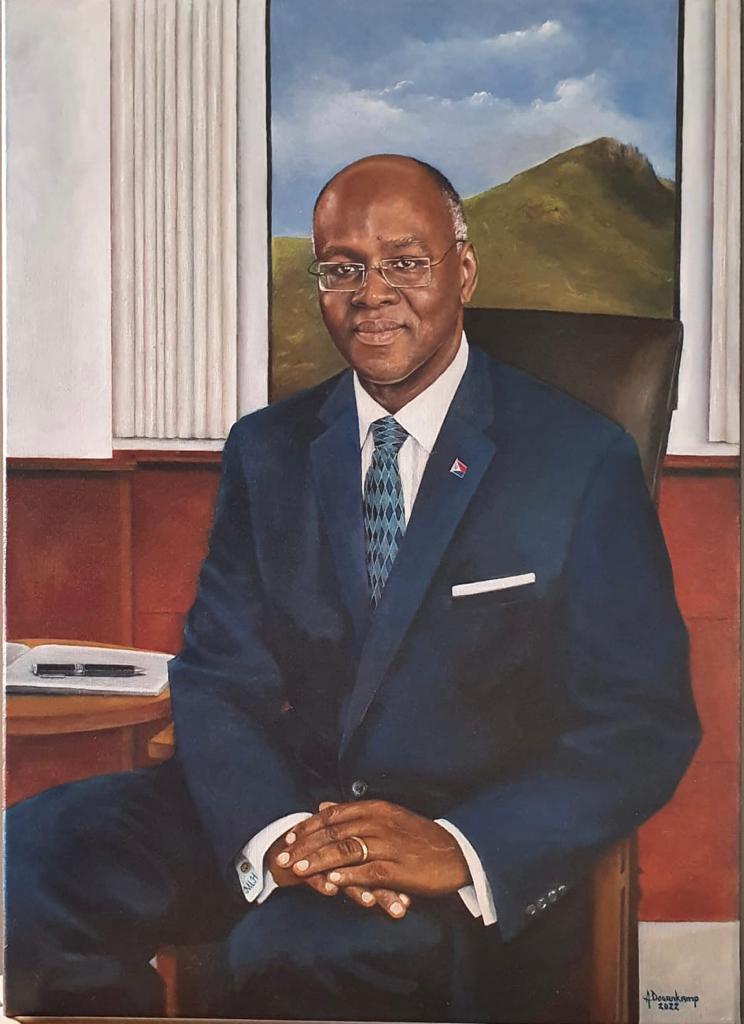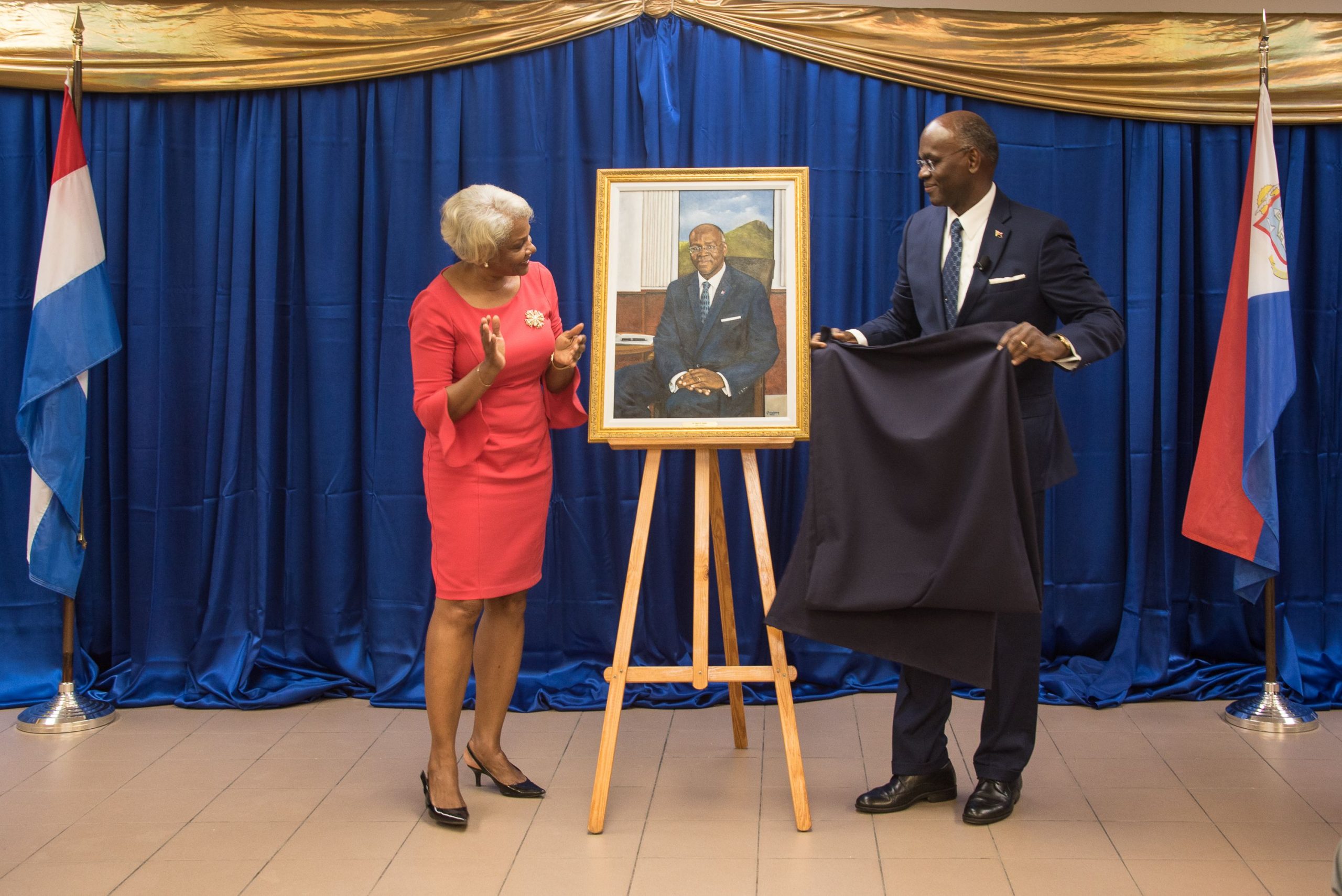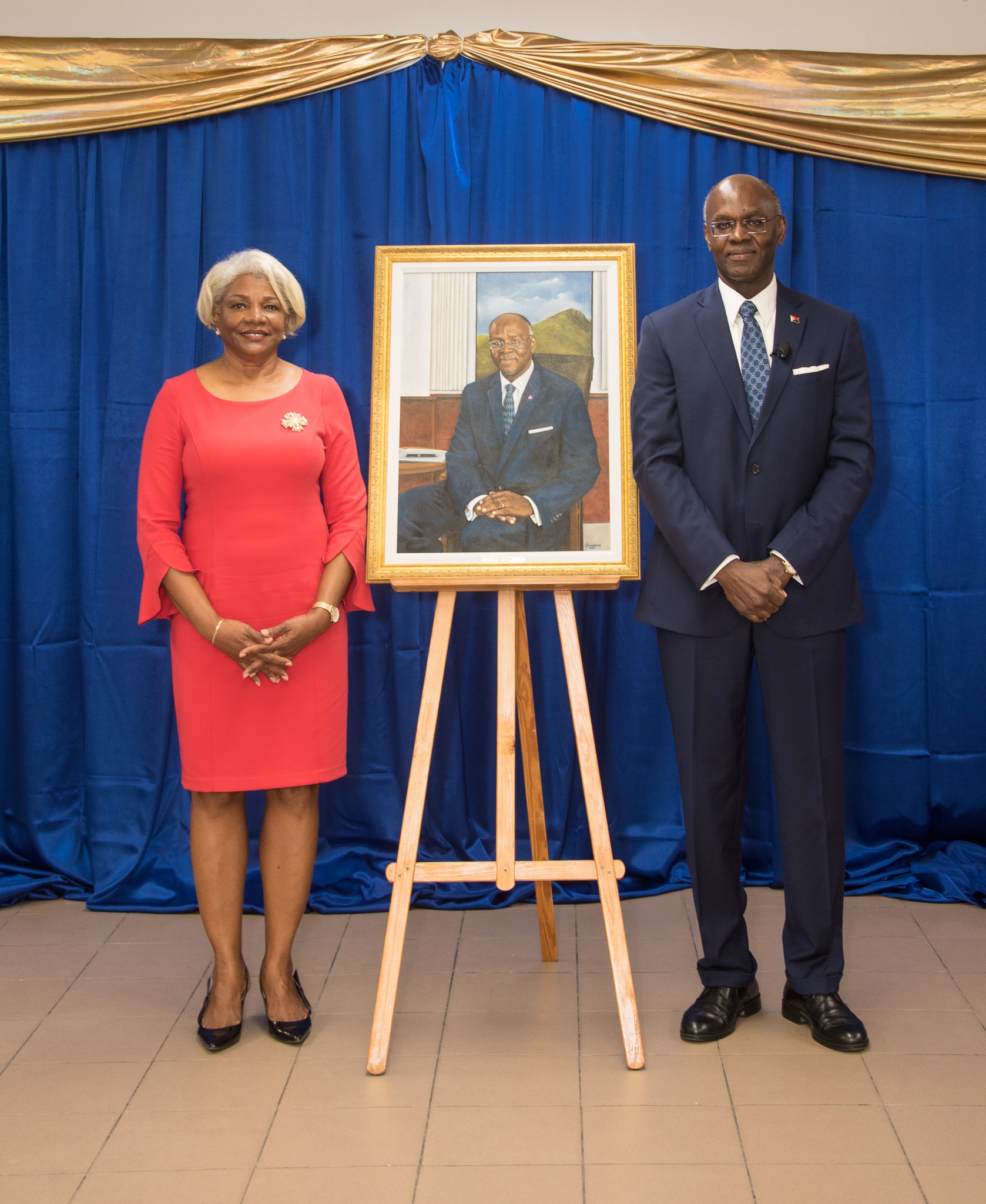After twelve years Governor Holiday’s tenure comes to an end

PHILIPSBURG — On October 10, the second 6-year term of Governor Eugene B. (the B stands for Bernard) Holiday comes to an end. During the past twelve years the Governor has functioned as the unflappable representative of the crown, the guardian of the Constitution and a supporter of youth sports development, notably through the Governor’s table tennis cup.
On October 10, St. Maarten will have a new governor. Who that will be is anybody’s guess. The names of several candidates are already circulating. Among them is attorney Jason Rogers, the former chairman of the Central Voting Bureau. Stepping into the shoes of Governor Holiday will be a daunting challenge for whoever his successor will be.
The website of the Governor’s cabinet lists the text of around 160 speeches the governor gave during his tenure. There are Christmas messages, New Year’s addresses, speeches at the opening of the parliamentary year, swearing in new governments and everything in between.
Reading through those speeches, especially the ones that address the parliament at the beginning of a new parliamentary year show the governor’s rock-steady belief in St. Maarten’s creed: Semper Pro Grediens – Always Progressing. “That is based on the belief that if we work together as individuals, business, labor unions and government we can make each year better for our people and country,” Holiday said during his final New Year’s address on January 1 of this year.
As the representative of the crown, the governor is the formal head of St. Maarten’s government though he does not play an active part in the day to day business of politics. That has however never stopped him from giving strong hints about the way things ought to be done by the fifteen elected parliamentarians and the Council of Ministers.
On September 1, 2010, when Holiday accepted the position of governor, he expressed his confidence in St. Maarten’s future with the following statement: “In the spirit of the people of St. Maarten and in the tradition of the Kingdom, I am hopeful and confident that with the help of God we will continue to take St. Maarten forward, building a strong, stable, responsible and just society.”
The challenges ahead of us are immense, Holiday said later that year in his acceptance speech, thus referring to all the institutions the young country had to establish. He also pointed to something that has remained a sore point for the past decade: “We will have to improve our financial management and strengthen our judicial organizations.”
But in the face of these challenges, the governor also labeled St. Maarten’s new constitutional status as a great opportunity. “Effective today we, like no generation before us, have the opportunity and constitutional authority to shape the socio-economic, cultural and environmental construct of our beloved island. How we address this challenge and approach this opportunity will determine our success in the discharge of our responsibilities.”
Truer words were never spoken.
In his second New Year’s address, on January 6, 2012, the governor recommended “initiatives such as the institution of a law faculty at our institute of higher learning, the establishment of a St. Maarten philharmonic orchestra and a center for the performing arts.”
A year later the governor called for the elimination of poverty, the protection of the environment and a united front against crime and corruption.
On June 14, 2013, when the governor addressed already the third incoming government in less than three years, Holiday spoke of the creation of “a constitutional order based on an open an approachable government. (….) Anything else will go against the interest of the people of St. Maarten.”
In his New Year’s address on January10, 2014, the governor expressed his concern about the developments in 2013: “They tell a story of political discord and budgetary imbalances that is not conducive to the sustainable development of our people. They tell a story of conflict, integrity investigations and divisiveness as opposed to one of unity, opportunities and potentials fulfilled.” Holiday furthermore observed that “it seems that too often public and private policies are driven by politics and factors other than those that are in the interest of the people.”
At the opening of the parliamentary year in 2014, the governor spoke about research into the feasibility and design of a compulsory pension plan, while legislation about study financing and higher education were “high on the government’s agenda and in their final stages.”
It is good to note that the contents of the governor’s speeches at the opening of the parliamentary year reflect the intentions of the government that is in office at the time. The same is true for the King’s speech at the opening of the parliamentary years in the Netherlands.
In the late sixties of last century the iconic comedian Wim Kan made fun of Prime Minister Piet de Jong at such an occasion: “Little thumb listening to his own fairy tale.” Thus establishing that: 1. De Jong was not exactly tall (on the contrary) and 2. that De Jong was the author of the King’s speech.
The governor depends in the same sense on the input of the government for the contents of his speech. While year after year the intentions of successive governments turned indeed out to be no more than fairy tales, the governor has little choice but to follow the lead of whatever a government feeds him.
This is how promises of a tourism authority, a competition and consumer authority and an agency responsible for licensing and controlling gaming operations came into being. Promises they were, and promises they remained.
On December 10, 2014, the governor delivered a speech at the swearing in of yet another cabinet. He referred in it to the cooling relationship between Philipsburg and The Hague “with a lively debate concerning the position of the governor.”
That worried the governor: “This debate which questions the integrity of government is cause for concern. It is a matter that concerns all St. Maarteners, for it is a matter that clouds good and positive aspects of our people and threatens our further development.”
The governor’s speeches over the years have a few things in common: Holiday’s unrelenting call for integrity, building public trust and shifting focus from what is legal to what is good for the country’s citizens.
Sadly, successive governments and parliaments have turned a deaf ear to suggestions to do better. The string of parliamentarians who fell foul of the law and the constant bickering between the government in Philipsburg and the Kingdom government make that abundantly clear.
One more example: in September 2016, the governor said at the opening of the parliamentary year that the government had “placed the regulation of the legal position of police officers and national detectives high on its agenda with the objective of placing the officers in their respective positions before the end of the year.”
It sounded good but, like many other promises, they never became a reality within the given timeframe.
In September 2021, the governor’s speech at the opening of the parliamentary year offered a candid insight in the way the current government wants to get out of the economic slump caused by Hurricane Irma and the COVID-19 pandemic. The government will focus on making the labor market more flexible, the governor said, but how this is going to happen remains unclear. The economy will remain firmly focused on tourism: “The government believes that culture can be a vehicle in the diversification of the tourism product.”
It appears furthermore that, for lack of better ideas, the focus will also be on attracting more tourists. “Attracting tourists remains the cornerstone of the government’s economic recovery plan.”

VIDEO: Unveiling of the official portrait of the First Governor of Sint Maarten Eugene B. Holiday



























